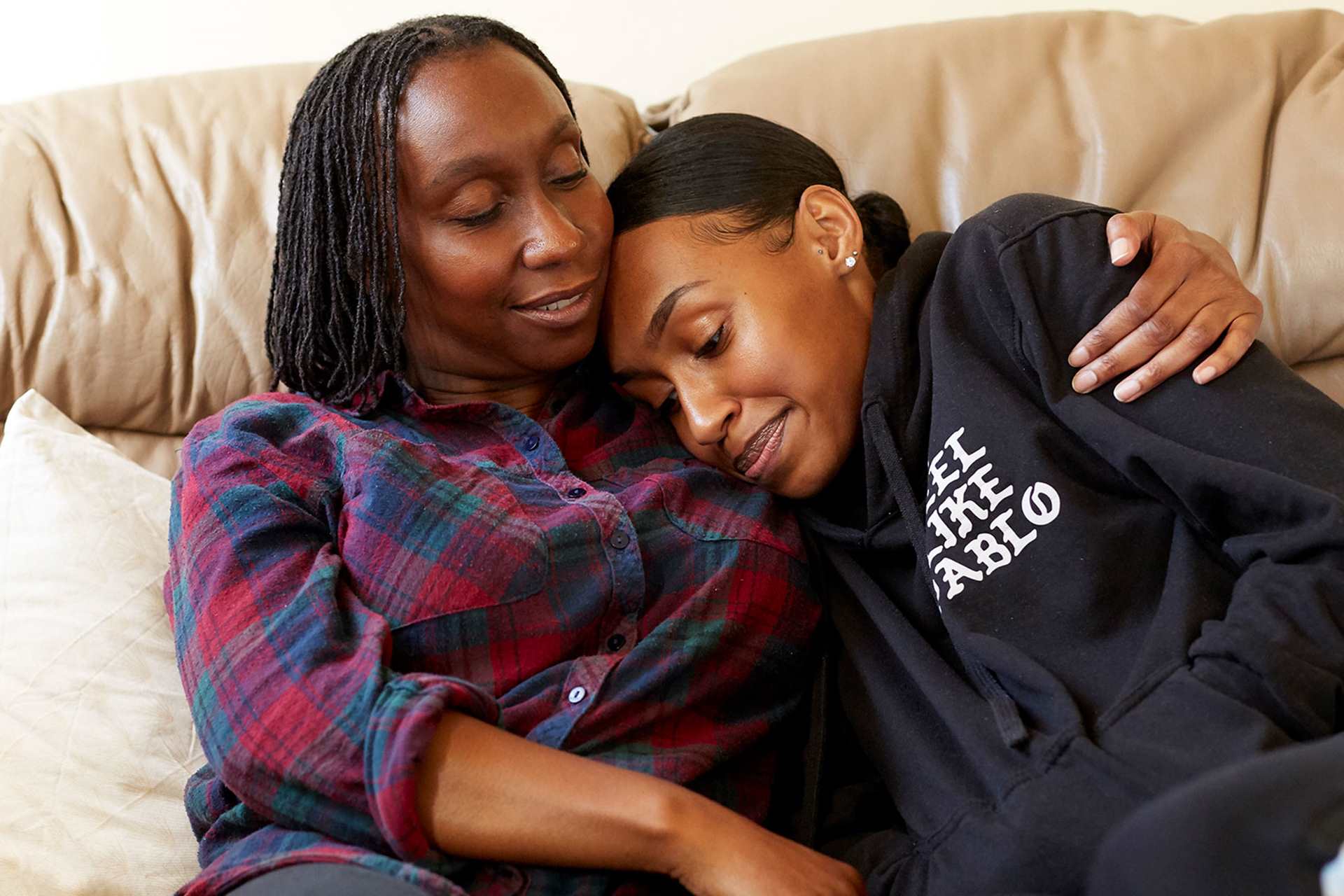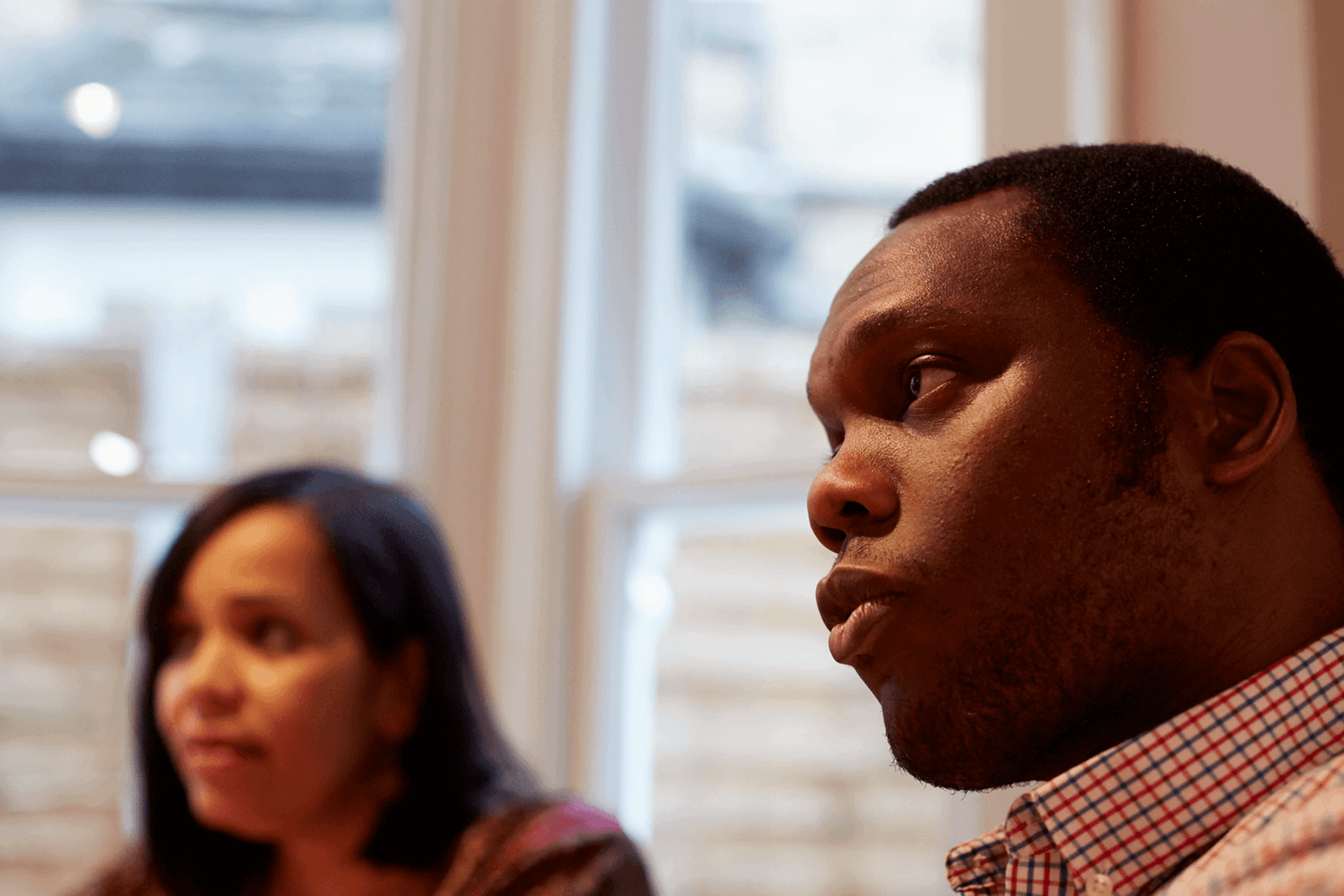Topics mentioned: looking after yourself as a parent, getting support from mental health services
Seeking help for ourselves is not an admission of guilt, but ‘role-modelling’ good mental health for our children.
A parent's instinct
Being the parent of a child with mental health problems is tough. It’s a wound that causes pain for a very long time, as many mental health issues are long-term. The feelings of guilt and failure swamp your mind and emotions spill over, but at the same time you need to be calm and consistent. It can make you sensitive and volatile at a time you need to be more robust.
There is a sense of loss and grief too as the trajectory of your young person's life - and the life of your family - is derailed. But this is something you often don't get a chance to address, because whether the issue is self-harm, depression, anxiety or anorexia, the repercussions of your loved one’s illness need your time and attention.
There is a sense of loss and grief too as the trajectory of your young person's life - and the life of your family - is derailed.
A balancing act
On top of this process is the issue of acquiring help from the GP, with a building sense of anxiety and urgency, which may or may not involve frustration or desperation as systems cannot always keep up with events unfolding.
As well as all this, you may not only be a parent, but also an employee, a spouse, a parent to other children. The other pressures in life are still there. There is not only the possible disruption to daily life but the niggling self-doubt in your mind can be disabling, undermining your confidence in every area. As a result, relationships can be put under strain.
There is not only the possible disruption to daily life but the niggling self-doubt in your mind can be disabling, undermining your confidence in every area.
Pace yourself
The parental stresses are atmospheric, affecting sleep and diet, and can have an impact on your physical health. It may seem selfish or self-indulgent to focus on yourself but you have to reflect on things, to be kind to yourself and be your own best friend.
Allow friends and relatives to be supportive, and don’t be embarrassed to tell them what you need. You may need someone to listen, or an outlet for how you're feeling, a casserole delivery or a helping hand to look after your other children. Seek out and use support helplines. The reality is you have to pace yourself for the long-term with mental illness.
Allow friends and relatives to be supportive, and don’t be embarrassed to tell them what you need.
Give yourself time
I would say that it is worth considering therapy. The best help we can be to our children is to be well enough ourselves to support them with what they need. With everything I have described it’s difficult to be calm and not angry, it’s easy to be too emotional or cold and coping. You are not going to be able to be open to new ideas and the flexibility needed to participate in treatments.
You have to manage you own worry and emotions. You need to be available to them but not smothering, to be able to just listen when they choose and show understanding. You need to be calm and consistent and to inspire confidence in your children. They have to be the change agent for themselves, but you can support them to overcome troubles often more than once. You need time for reflection on your parenting to ensure it's not skewed by events for any of your children.
It’s an enormous challenge to be what your children and family need in the midst of things. I was so angry at everyone, so desperate I couldn’t see the wood from the trees. I reluctantly took the offer of therapy which was hard, but it was hugely valuable to my daughter in her recovery and a lifelong benefit to me. So don’t be afraid to seek support, and be grateful for any help offered. After all, we are all human and we are all worth it!
Spread the word



